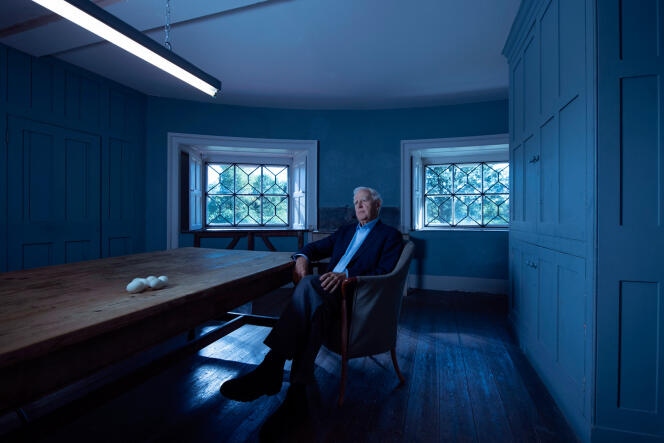It was, a priori, a dream marriage: an American documentarian fascinated by lies and pretenses and the British master of spy fiction. The union was consummated in 2019, a year before the death of John le Carré, born David Cornwell in 1931, who spent hours answering Errol Morris’ questions. We had to wait four years to discover the fruits, under the title John le Carré: the pigeon tunnel. They are as appetizing as they are disappointing.
We will pass over the tics specific to Errol Morris, his propensity for the hyperdramatization of ordinary moments, his mania for recreating certain moments of his interlocutor’s story in sketches imitated from Hollywood cinema. These weaknesses are all the more obvious here as John le Carré carefully avoids any revelation. The interviewee leads the story with the mastery he demonstrates as a novelist. He looks back on his childhood, between a mother who abandoned him rather than follow her crook husband who fled creditors and police and made her son his accomplice. This is how John le Carré stayed, as a child, in Monte Carlo where the guests of a palace engaged in pigeon shooting on real birds which were released through a tunnel from which they flew away. , dazzled by the light of day. Hence the title of the film.
The spectators are dazzled by the elegance and humor of David Cornwell, by his apparent frankness when he details the villainies of his father or his first steps in the world of intelligence. But this wonder does not hold up in the face of the growing sensation of seeing a man repeating what he has already told his official biographer or in his memories in order to consolidate the wall which guards his true secrets.
Mastery of dialogue
When John le Carré explains to Errol Morris that we have “need to know something about the ambitions of the people you are talking to”, the filmmaker believes for a moment that he is one of the chosen ones, that the master has chosen him to reveal himself. This hubris is not entirely unjustified. In one of his most beautiful films, The Fog of War (2003), Morris succeeded in breaking the armor of Robert McNamara, the architect of the Vietnam War. But here he is dealing with an interrogation practitioner trained by the British secret services. The writer never renounces his mastery of dialogue.
The author of The Spy Who Came in from the Cold (1963) brushes aside an attempt to reveal his personal life (he uses the term “sex life” to discourage questions and minimize the issue). He agrees to portray himself as a son, but refuses to appear as a father, husband or lover (a book has just been published in the United Kingdom which details the very complex love life of David Cornwell). He may expatiate on the betrayal of Kim Philby, the head of British intelligence who worked for the USSR, but responds casually about his denunciation of his communist comrades at Oxford.
You have 20% of this article left to read. The rest is reserved for subscribers.
